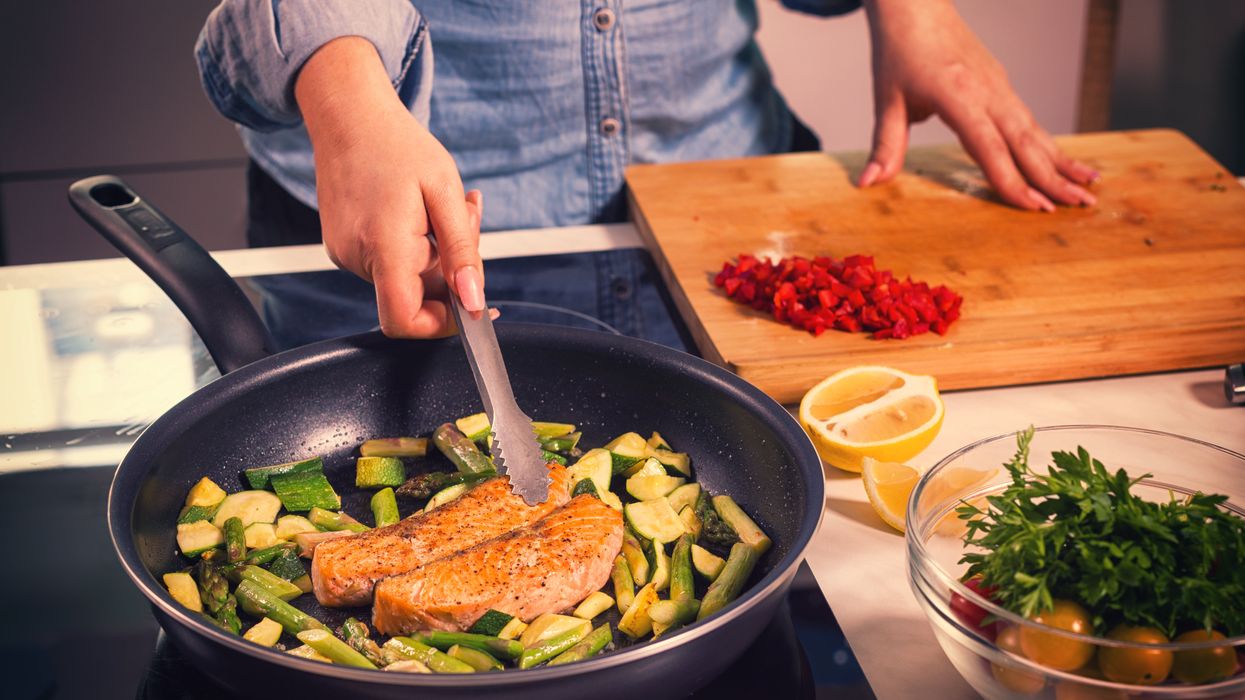
These delicious options are an excellent alternative to the popular - but endangered - fish
Salmon is a fish loved all over the world, but not everyone realises that eating it isn’t always sustainable — especially in the United States. Both Pacific Salmon and Atlantic Salmon are endangered: Salmon in Washington have been reported to be “on the brink of extinction,” while in Maine conservationists are actively pushing to protect the species on a state level as hydroelectric dams further endanger the lives of the population.
“It’s really bad. It’s incredibly bad,” said Nick Bennett, a staff scientist at the Natural Resources Council of Maine. “Both National Marine Services and the Department of Marine Resources recommended dam removal. The FERC [The Federal Energy Regulatory Commission] completely ignored that.” Thus, the dams remain, potentially harming — or killing — salmon down the line.
Considering these conservation efforts, we felt it appropriate to offer some suggestions to help readers decrease their salmon consumption. So if you love eating fish but want to shop sustainably, you’re in luck: Here are three delicious — and sustainable — salmon alternatives to add to your diet instead. (Don’t worry: We asked actual chefs.)
Arctic Char
“Arctic char is a delicious fish that’s very similar to salmon in flavour and texture,” says Devan Cameron, chef and owner of Braised & Deglazed.“The flesh is a little bit lighter, with a softer flavour and the skin crips up beautifully. It can be hard to come by but it’s usually cheaper than salmon and a great alternative.”
Arctic Char, which is also known as Alpine Trout and/or Sea Trout, is also a great source of omega-3 fatty acids, which has been reported to help prevent heart disease and stroke as well as brain development. It’s also high in calcium and vitamin D, which actually helps calcium absorption (win/win!) as well as immune function and over all health.
But the best part of all is that char is especially sustainable, as it takes well to being farmed — unlike salmon. The Environmental Defense Fund Seafood Selector considers char to be an “an environmentally friendly alternative to farmed salmon” as they “are mostly raised in tanks and raceways onshore, unlike salmon which are generally raised in open netpens in coastal waters.” It receive a “best” eco-rating by the organisation, as well.
Trout
“A good alternative to salmon in the US is farmed trout,” says Jessica Randhawa, head chef, recipe creator, photographer, and writer at The Forked Spoon. “While I am not a fan of farmed salmon due to the havoc the industry causes to wild populations, farmed trout is a different matter as they are generally farmed in closed-off freshwater tanks.
“Most farmed trout in the U.S. is of the rainbow trout species, which is part of the family Salmonidae which all salmon are also from,” Randhawa continues. “Farmed rainbow trout have a similar taste and nutritional value to farmed salmon, with less guilt, and are thus a great replacement.”
Indeed, farmed trout have been given the “best” eco-rating by EDF Seafood Selector, due to its farming being “held to strict environmental standards.” Plus, in terms of nutrition, trout is full of Omega-3 fatty acids and an excellent source of phosphorous, which aids bone strength and muscle recovery.
Tilapia
“Tilapia is an excellent alternative choice to salmon for those looking for a mild-tasting and lean protein,” says chef, cookbook author and food blogger Liana Green. “It is a mild-flavoured, moderately priced fish that can be grilled, baked or pan-fried. It’s easy to spice up using different spices and herbs. There are many ways to enjoy this versatile whitefish.”
“This freshwater fish is far more sustainable than salmon,” she adds. “It’s easy to raise on farms with no risk of overfishing.”
Like Arctic char and trout, tilapia also received the “best” eco-rating by EDF Seafood Selector — as long as it’s farmed in the United States, or imported from Ecuador or Peru.
Plant-based alternatives
“You could opt for certain vegan foods that can provide you with similar nutrition profiles as salmon,” suggests Brittany Lubeck, registered dietitian and consultant for Oh So Spotless.
“Whether you are a vegan or want to eat animal-free once in a while, you can find lean protein and omega-3 fatty acids like those in salmon in chia seeds, flaxseed, and walnuts. There are also some vegan salmon patties and filets on the market, often made with jackfruit, seitan, or soy.”
“You may even consider making your vegan fish cakes at home, as there are many recipes online. Some cooks are even using thinly sliced carrots or tomatoes in place of salmon and say that with the suitable marinade, you will hardly know the difference.”













